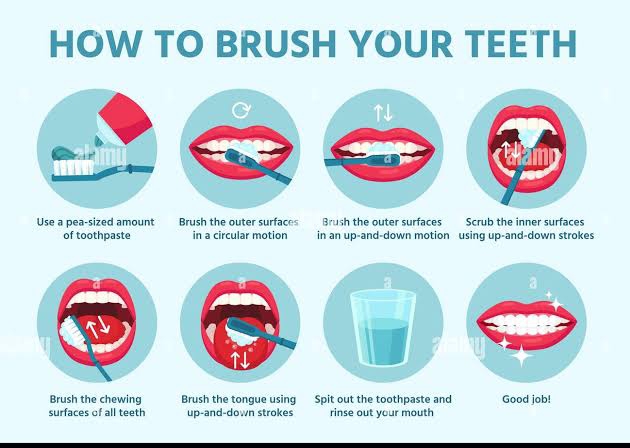When you want to stay on top of your dental hygiene routine, it’s not a question of how many times per day you should brush your teeth. (However, a good rule of thumb is at least twice, according to the American Dental Association. We agree with them.) The most important question is the best times of day to brush your teeth.
Brushing your teeth ensures that sugar, food, and other debris isn’t sitting on your teeth collecting bacteria. Going too long without brushing can cause cavities - and, even if you’ve brushed your teeth every single night for years, you can still get cavities simply by going all day without brushing if you’re drinking sugary drinks or eating food that’s high in sugar or carbohydrates (as these are the top two culprits of cavities). Cavities can be avoided by sticking to a strict tooth brushing schedule.
Best Times of Day to Brush
In short, the best times of the day to brush your teeth are in the morning and in the evening. Some wonder if after eating breakfast is the best time to brush their teeth, but it’s actually best to brush your teeth right when you wake up in the morning.
This is because bacteria can build up on your teeth overnight while you’re sleeping. That’s right - even when you’ve brushed your teeth right before bed, bacteria can (and does) still build up. This is due to the fact that our mouths produce less saliva than usual while we’re sleeping, and saliva is actually what washes away the majority of bacteria during the day.
At night, brushing just before bed is great. Make sure that you avoid any food or beverages after brushing, with the exemption of water. Anything that you eat or drink before bed will stick to your teeth, and because your saliva isn’t being produced as readily, it will be significantly easier for bacteria to grow and spread.
Why it may be better to brush before breakfast
There may actually be a scientific answer to this question. While you sleep, plaque-causing bacteria in your mouth multiply. That’s part of why you may wake up with a “mossy” taste and “morning breath.”
Washing those bacteria right out with a fluoride toothpaste rids your teeth of plaque and bacteria. It also coats your enamel with a protective barrier against acid in your food.
You should avoid brushing your teeth after eating for at least 30 minutes if you consume something acidic. Breakfast foods and drinks such as toast, citrus, and coffee fit the criteria for acidic food.
When you brush first thing in the morning, you also jump-start your saliva production. One small study of 21 older adults showed that after brushing, study participants saw their saliva production jump for up to 5 minutes. Your saliva helps your food break down and naturally kills harmful bacteria in your mouth.
Precautions for brushing teeth after breakfast
If it works better for your morning routine to brush after breakfast, you can still do so — but here’s some information to keep in mind.
Brushing immediately after eating breakfast may actually cover your teeth with remnants of acidic food, which weakens your enamel. Breakfast staples are some of the worst foods for your tooth enamel, including:
- orange juice
- citrus fruit
- dried fruit
- bread
- pastries
So, brushing may be particularly bad for your teeth right after breakfast.
Waiting 30 minutes to an hour after eating to brush your teeth is the best way to ensure that you’re protecting your teeth and not tampering with your enamel.
The American Dental Association recommends waiting 60 minutes after eating before you brush, especially after having acidic foods.
Drink water or chew sugar-free gum after eating to clean your teeth before you brush.
How to brush your teeth
When you brush your teeth properly is as important as (if not more important) than when you brush.
Whether you’re using an electric toothbrush or a standard manual toothbrush with nylon bristles, you can follow the steps below:
- Wet your brush head with a small amount of water to lubricate it. Add a small amount of fluoride toothpaste, about the size of a pea.
- Brush your teeth at an angle so you can get into hard-to-reach spots. Brush for 2 minutes, ensuring you’re brushing your front teeth, the sides of your teeth, and the chewing surface of your teeth.
- Brush off the bacterial residue from your tongue that may have accumulated during the brushing process.
- Spit out any leftover toothpaste.
Final Thought
When you’re looking to protect your tooth enamel, brushing right after you wake up in the morning is better than brushing your teeth after breakfast.
If you have to brush your teeth after breakfast, try to wait 30 to 60 minutes before you brush.
Brushing in the morning, whenever you’re able to do it, is still better than not brushing your teeth at all.



Comments
Post a Comment